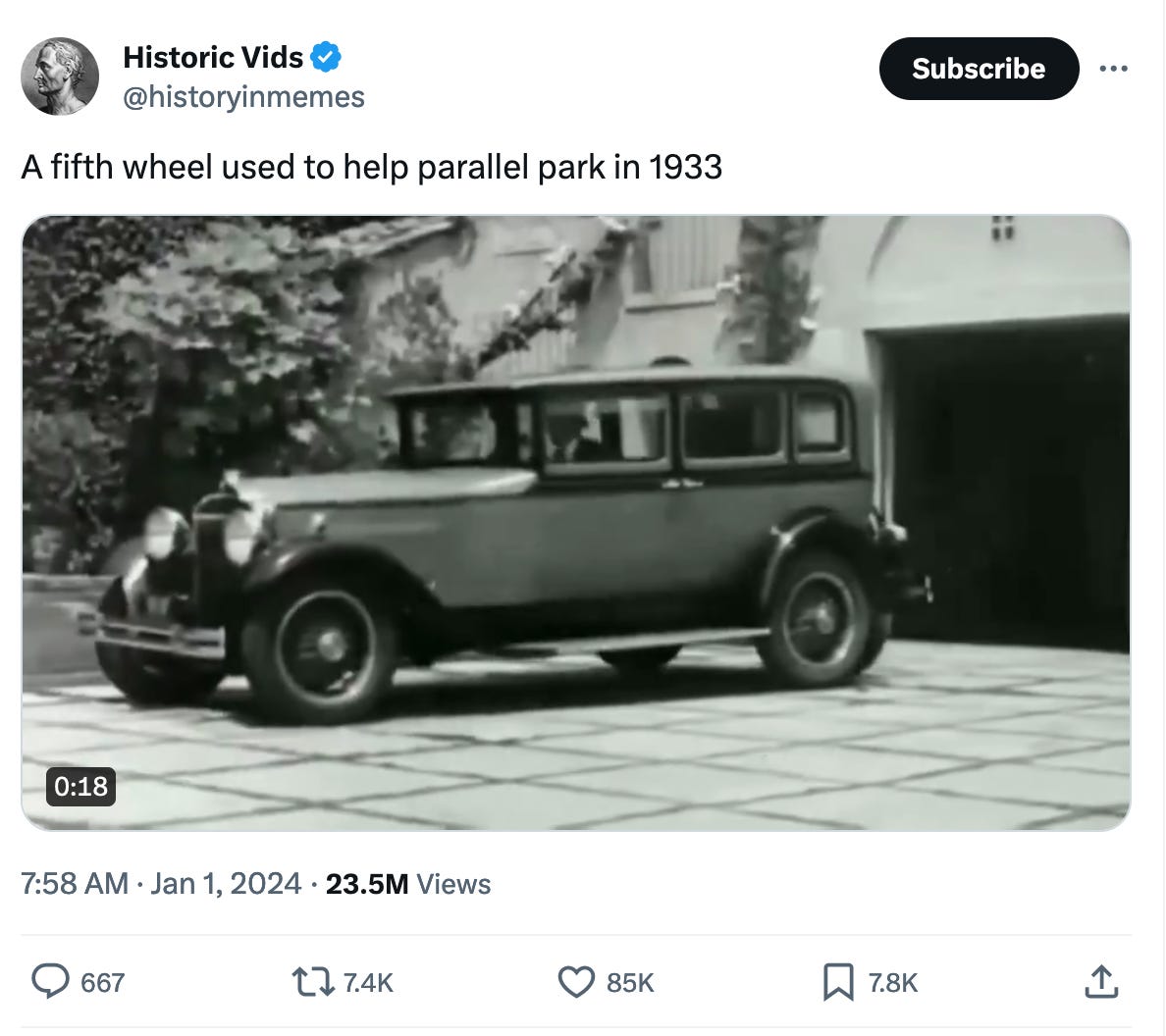This week's best things
Happy new year. Insights on reading patterns, analysis of shifting behaviour on social media, Google research on AI, thoughts on the New York Times vs OpenAI, hackers, and a library of the future

F-Shape Pattern And How Users Read. Why the F-pattern is harmful for users and businesses, how to prevent it and what to aim for instead
An interesting and useful post from Smashing Magazine’s Vitaly Friedman that shares a load of insights and resources on how people read online.
“Prevent F-shaped scanning if you can. Think of it as user’s fallback behavior if the design doesn’t guide a user through the content well enough. At least, give users anchors to move to E-shaped scanning. At best, direct their attention to relevant sections with the Layer Cake scanning.”
Twitter’s Demise Is About So Much More Than Elon Musk
An interesting read in The Atlantic that, as the title suggests, does expend more words pondering just how massively Elon Musk has damaged Twitter.
However it also zooms out to look at the impact of wider changes in user behaviour, and the emergence of differently-focused social platforms (like Tiktok).
“…the decline of Twitter, and the race to replace it, is in a sense a sideshow. Analytics experts shared data with me suggesting that the practice of microblogging, while never quite dominant, is only becoming more niche. In the era of TikTok, the act of posting your two cents in two sentences for strangers to consume is starting to feel more and more unnatural. The lasting social-media imprint of 2023 may not be the self-immolation of Twitter but rather that short-form videos—on TikTok, Instagram, and other platforms—have tightened their choke hold on the internet. Text posts as we’ve always known them just can’t keep up.”
Google researchers deal a major blow to the theory AI is about to outsmart humans
"When presented with tasks or functions which are out-of-domain of their pre-training data, we demonstrate various failure modes of transformers and degradation of their generalization for even simple extrapolation tasks," authors Steve Yadlowsky, Lyric Doshi, and Nilesh Tripuraneni wrote.
What transformers are good at is performing tasks that relate to the data they've been trained on, according to the paper. They're not so good at dealing with tasks that go even remotely beyond that.
New York Times vs OpenAI lawsuit
Lawyer and journalist, Ceclia Ziniti shares her thoughts on the suit that the New York Times has filed against OpenAI which alleges infringement of copyright.
“Tl;dr - It's the best case yet alleging that generative AI is copyright infringement.”
The Mirai Confessions: Three Young Hackers Who Built a Web-Killing Monster Finally Tell Their Story
A fascinating story in Wired about the young people behind the 2016 cyberattack which was so sophisticated, widespread, and effective that the US government was convinced was carried out by a nation state.
“Over the past year or two, someone has been probing the defenses of the companies that run critical pieces of the internet,” Schneier, one of the most highly respected voices in the cybersecurity community, had warned. He described how an unknown force appeared to be repeatedly barraging this key infrastructure with relentless waves of malicious traffic at a scale that had never been seen before. “These probes take the form of precisely calibrated attacks designed to determine exactly how well these companies can defend themselves, and what would be required to take them down. We don’t know who is doing this, but it feels like a large nation-state. China or Russia would be my first guesses.”
A library of the ‘future’: Can it make the world a better place?
I’ve been fascinated by Norway’s Future Library project ever since it was announced. This Al-Jazeera article is a fairly deep dive into this ambitious, 100-year artistic project.
“Each year from 2014 to 2114, a manuscript is sealed in the Silent Room of Norway’s ‘Future Library’. The goal: Greater hope for humankind.”
Storythings First Draft
Storythings are welcoming applications to the 2024 edition of their First Draft programme.
“First Draft is Storythings’ pro-bono consultancy offer to small organisations, groups, networks or collectives who create change by working with under-represented communities.”
A genius invention
I’ve no idea if this is real or not but either way, why is it not a thing!?
